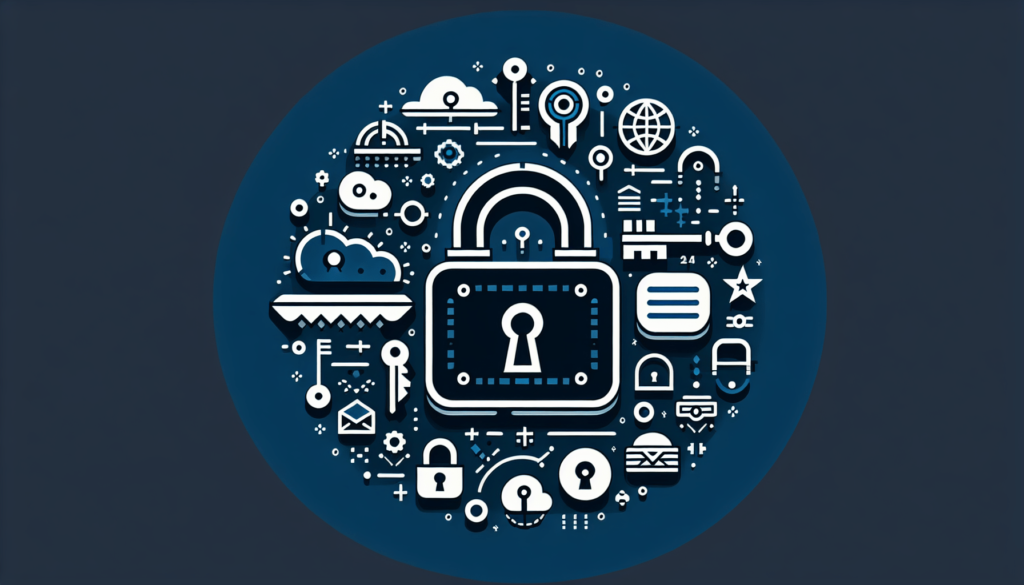In today’s digital age, ensuring privacy and data protection is crucial in security awareness training. With the rise of cyber threats and data breaches, organizations must prioritize educating their employees on the importance of safeguarding sensitive information. By incorporating privacy and data protection principles into training programs, employees can become more vigilant and proactive in preventing security incidents. This article will explore the significance of privacy and data protection in security awareness training and provide valuable insights for organizations looking to enhance their cybersecurity measures.
Privacy And Data Protection In Security Awareness Training
Have you ever wondered how privacy and data protection are incorporated into security awareness training programs? In today’s digital age, where data breaches and cyber threats are rampant, ensuring the privacy and protection of sensitive information is crucial for organizations. In this article, we will explore the significance of privacy and data protection in security awareness training and provide insights into how organizations can effectively safeguard their data.

Importance of Privacy and Data Protection
Privacy and data protection are critical components of security awareness training programs. With the increasing number of sophisticated cyber threats targeting organizations, ensuring the confidentiality, integrity, and availability of sensitive information is paramount.
In today’s interconnected world, where personal and corporate data are constantly under threat, organizations must prioritize privacy and data protection to mitigate the risks of data breaches and cyber attacks. By educating employees on the importance of safeguarding sensitive information, organizations can create a culture of security awareness that helps reduce the likelihood of security incidents.
Why Privacy and Data Protection Matter
Privacy and data protection matter because they help organizations maintain trust with their customers, partners, and employees. By safeguarding sensitive information, organizations demonstrate their commitment to protecting the privacy and confidentiality of data. This not only enhances their reputation but also helps prevent financial and reputational damage resulting from data breaches.
Risks of Inadequate Privacy and Data Protection
Inadequate privacy and data protection pose significant risks to organizations, including financial losses, legal liabilities, and reputational damage. Data breaches can result in the loss of sensitive information, such as customer data, intellectual property, and financial records, leading to severe consequences for business operations.
Moreover, penalties for non-compliance with data protection regulations, such as the General Data Protection Regulation (GDPR) and the California Consumer Privacy Act (CCPA), can result in hefty fines and legal sanctions for organizations. By prioritizing privacy and data protection in security awareness training, organizations can reduce the risks associated with data breaches and non-compliance with regulations.
Strategies for Ensuring Privacy and Data Protection
Ensuring privacy and data protection in security awareness training requires a multi-faceted approach that addresses various aspects of data security. From educating employees on best practices for data handling to implementing technical safeguards to protect sensitive information, organizations must take proactive steps to safeguard their data.
Employee Training and Awareness
One of the most effective ways to ensure privacy and data protection is to provide comprehensive training and awareness programs for employees. By educating employees on the importance of safeguarding sensitive information, organizations can empower them to identify and respond to security threats effectively.
Training should cover topics such as data handling best practices, password security, phishing awareness, and the importance of reporting security incidents promptly. By fostering a culture of security awareness among employees, organizations can create a strong defense against cyber threats and data breaches.
Data Classification and Encryption
Data classification and encryption are essential components of data protection strategies that help organizations categorize and secure sensitive information. By classifying data based on its sensitivity and implementing encryption technologies to protect it, organizations can prevent unauthorized access and disclosure of confidential information.
Data encryption ensures that sensitive data is securely stored and transmitted, reducing the risk of exposure to cyber threats and unauthorized access. By implementing encryption protocols and access controls, organizations can strengthen their data protection measures and enhance security across their systems.
Privacy Policies and Compliance
Privacy policies and compliance with data protection regulations are critical for ensuring the lawful and ethical handling of sensitive information. Organizations must establish clear policies and procedures for data handling, retention, and disposal to comply with privacy regulations and protect the privacy rights of individuals.
By implementing privacy policies that outline the organization’s commitment to data protection and compliance with regulations, organizations can demonstrate their commitment to safeguarding sensitive information. Regular audits and assessments of privacy practices help organizations identify and address gaps in their data protection measures, ensuring continued compliance with data protection regulations.

Best Practices for Privacy and Data Protection in Security Awareness Training
Implementing best practices for privacy and data protection in security awareness training can help organizations strengthen their data security measures and mitigate the risks of data breaches. By following industry guidelines and standards for data protection, organizations can create a robust security awareness program that educates employees on the importance of safeguarding sensitive information.
Establishing Clear Policies and Procedures
One of the best practices for privacy and data protection is to establish clear policies and procedures for data handling, storage, and transmission. By defining roles and responsibilities for data security and outlining acceptable use policies for sensitive information, organizations can create a framework for safeguarding data.
Privacy policies should address key aspects of data protection, such as data classification, encryption protocols, and access controls, to ensure that sensitive information is securely managed. By documenting privacy practices and procedures, organizations can provide employees with guidelines for protecting data and complying with privacy regulations.
Regular Security Awareness Training
Regular security awareness training is essential for reinforcing the importance of privacy and data protection among employees. By providing ongoing training and education on emerging security threats, organizations can empower employees to recognize and respond to security incidents effectively.
Security awareness training should cover a wide range of topics, including phishing awareness, password security, social engineering attacks, and incident response procedures. By incorporating real-world examples and scenarios into training sessions, organizations can help employees understand the risks of data breaches and the importance of safeguarding sensitive information.
Incident Response Planning
Effective incident response planning is crucial for mitigating the impact of data breaches and security incidents on organizations. By developing a robust incident response plan that outlines procedures for responding to security breaches, organizations can minimize the damage caused by data breaches and prevent further unauthorized access to sensitive information.
Incident response plans should define roles and responsibilities for incident response teams, establish communication protocols for notifying stakeholders, and outline procedures for containing and remedying security incidents. By conducting regular drills and exercises to test incident response procedures, organizations can ensure that they are prepared to respond effectively to security threats.

Conclusion
Privacy and data protection are integral components of security awareness training that help organizations safeguard sensitive information and mitigate the risks of data breaches. By prioritizing privacy and data protection in security awareness programs, organizations can create a culture of security awareness that empowers employees to recognize and respond to security threats effectively.
In today’s digital landscape, where data breaches and cyber threats are prevalent, organizations must take proactive steps to protect sensitive information and comply with data protection regulations. By implementing best practices for privacy and data protection, organizations can enhance their data security measures and reduce the risks associated with data breaches and non-compliance with regulations.
Remember, privacy and data protection are everyone’s responsibility. By working together to safeguard sensitive information, we can create a safer and more secure digital environment for organizations and individuals alike.




